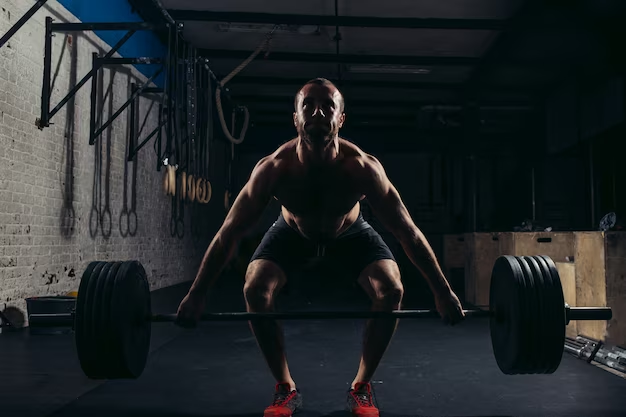Stay informed with expert advice, training strategies, nutrition tips, and success stories to help you achieve your fitness goals.


The squat is one of the most fundamental strength exercises, but many lifters struggle with plateaus, weak points, and improper technique. Whether your squat is stuck at a certain weight or you feel unbalanced in the movement, the right adjustments in form, strength training, and mobility work can help you squat more efficiently and safely.
This guide will break down common squat weaknesses and show you how to fix them to build a stronger, more powerful squat.
There are several reasons why your squat may not be improving. The most common issues include:
✔ Weak Leg Muscles – Your quads, hamstrings, or glutes aren’t strong enough.
✔ Poor Mobility – Limited ankle, hip, or thoracic mobility can restrict depth and balance.
✔ Core Instability – A weak core reduces control and strength under heavy loads.
✔ Improper Form – Bad bar positioning, foot placement, or depth can weaken the lift.
✔ Lack of Recovery – Overtraining without proper rest can stall progress.
📌 Tip: Identifying weak points in your squat will help you focus on the right fixes.
✔ Foot Position: Shoulder-width stance works for most, but adjust for comfort.
✔ Bar Placement: High-bar vs. low-bar—choose based on your strengths and mobility.
✔ Knee Tracking: Knees should follow toe direction to prevent instability.
✔ Bracing: Engage your core and lats before descending.
📌 Tip: Use a mirror or video to analyze your squat form and spot weaknesses.
Your glutes, hamstrings, and lower back play a crucial role in squat strength.
✔ Romanian Deadlifts – Strengthens hamstrings for better control.
✔ Glute Bridges & Hip Thrusts – Improves lockout power.
✔ Good Mornings – Reinforces lower back strength.
📌 Tip: Strong glutes help drive power out of the bottom of a squat.
Your quads help with drive and control in the squat.
✔ Front Squats – Improves quad engagement and upright posture.
✔ Leg Press & Bulgarian Split Squats – Builds unilateral strength.
✔ Pause Squats – Increases time under tension for quad activation.
📌 Tip: If you struggle to rise out of the hole, weak quads may be the problem.
A strong core keeps your torso stable under heavy loads.
✔ Planks & Ab Rollouts – Strengthens deep core muscles.
✔ Hanging Leg Raises – Engages lower abs and hip flexors.
✔ Weighted Carries (Farmer’s & Suitcase Carries) – Builds bracing strength.
📌 Tip: Weak bracing = energy leaks—tighten your core before every squat rep.
Limited mobility can prevent you from reaching proper depth or maintaining balance.
✔ Ankle Dorsiflexion Drills – Improves squat depth.
✔ Hip Flexor & Adductor Stretching – Increases hip mobility.
✔ Thoracic Spine Extensions – Helps maintain upright squat posture.
📌 Tip: Mobility work prevents injuries and improves squat efficiency.
If you struggle at different squat phases, use variations to fix it.
✔ Box Squats – Improves control and helps drive out of the bottom.
✔ Anderson (Pin) Squats – Strengthens mid-range sticking points.
✔ Tempo Squats – Increases control and strength throughout the squat.
📌 Tip: Add 1-2 squat variations per training cycle to target weaknesses.
Squatting heavier without a plan leads to plateaus and overtraining.
✔ Train squats 2-3 times per week to reinforce technique and strength.
✔ Use progressive overload by increasing weight gradually.
✔ Balance heavy, moderate, and speed-focused squat sessions.
📌 Tip: Squat programming should include both strength and volume phases.
At MuyTien, we help lifters build a stronger squat with personalized programming and expert coaching.
✔ Custom Strength Plans – Designed for optimal squat mechanics and power.
✔ Weak Point Training – Targeting glutes, quads, core, and posterior chain.
✔ Mobility & Recovery Coaching – Preventing injury and improving squat depth.
✔ Ongoing Support & Adjustments – Ensuring consistent progress.

Want to build a stronger squat? Contact MuyTien today for a personalized squat training program.